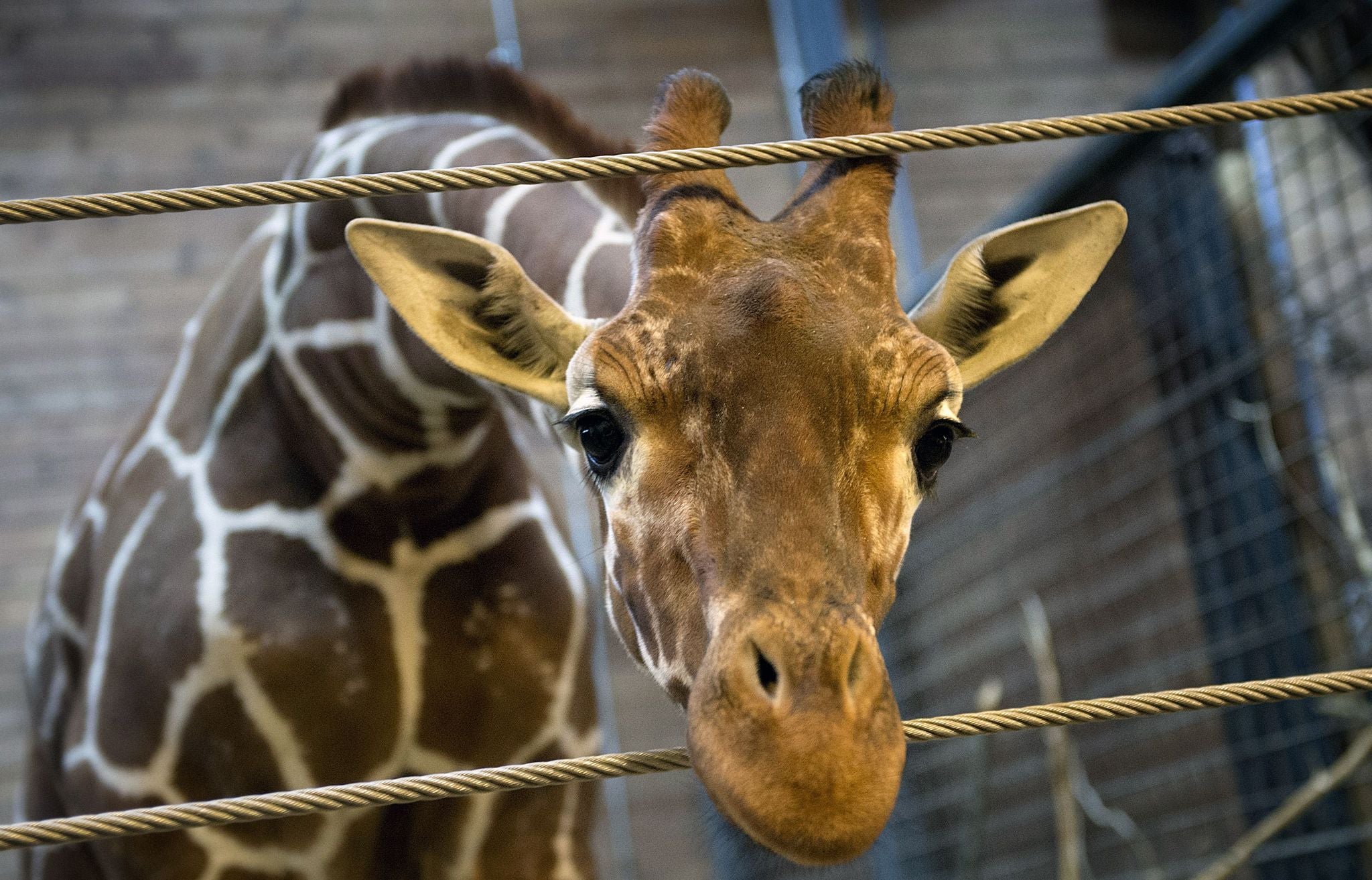If you're really saddened by the death of Marius the giraffe, stop visiting zoos
We wouldn't go to a prison to learn about typical human society, so it makes no sense to observe imprisoned animals in order to learn about them


If there had ever been any doubt that zoos serve no purpose beyond incarcerating intelligent animals for profit, the slaughter of Marius, an 18-month-old giraffe, on Sunday has surely settled the issue. Copenhagen Zoo delivered Marius into a life of captivity, allowing his mother to give birth to the calf while knowing that the baby would be “surplus” to its requirements and “useless” for breeding because his genes were too common.
The zoo used the baby calf to attract visitors and then slaughtered him. He was shot rather than given a painless lethal injection, just so that his flesh wouldn't be contaminated when it was cut up in front of horrified schoolchildren and, quite literally, thrown to the lions.
As the events of this weekend illustrate, breeding animals in zoos is not a sustainable practice because of space limitations and also because the practice creates a surplus of unwanted animals. It is estimated that approximately 7,500 animals in European zoos are considered "surplus" at any one time.
While Marius grabbed the headlines, it also emerged that lions were destroyed at Longleat Safari and Adventure Park in Wiltshire, owing to a rise in the population, which had caused "excessive violent behaviour". Anyone who thought the practice of breeding and then killing animals would surely not be sanctioned in the UK should think again. It is absolutely routine for zoos to euthanise newborn males of various breeds because they have nowhere to put them when they mature. Other unwanted animals are sold at auction and carted across the globe.
Zoo breeding programmes serve no conservation purpose because giraffes and other animals born in zoos are rarely, if ever, returned to their natural habitats. They put the "con" in "conservation", and zoos spend millions on keeping animals confined while natural habitats are destroyed and animals are killed, as there is insufficient funding for protection.
When London Zoo spent £5.3 million on a new gorilla enclosure, the chief consultant to the UN Great Apes Survival Partnership said that he was uneasy at the discrepancy between lavish spending at zoos and the scarcity of resources available for conserving threatened species in the wild. "Five million pounds for three gorillas when national parks are seeing that number killed every day for want of some Land Rovers and trained men and anti-poaching patrols. It must be very frustrating for the warden of a national park to see."
Animals in zoos often go insane from the frustration of life in captivity, and visitors leave without having learned anything meaningful about animals' natural behaviour, intelligence or beauty. There is nothing dignified or inspiring about seeing bored and depressed animals. In the wild, gorillas don't eat their own sick and pull out their hair in frustration. Free polar bears don't pace back and forth constantly on concrete. The typical behaviour of captive animals, such as bar-biting, self-mutilation, pacing and rocking, is unheard of among their free relatives.
We wouldn't go to a prison to learn about typical human society, so it makes no sense to observe imprisoned animals in order to learn about them. Today, we have IMAX movies and entire television channels dedicated to showing wildlife documentaries, which serve as virtual field trips and teach generations of children about animals without harming them. We no longer have any excuse for keeping intelligent social animals incarcerated and denying them everything that's natural and important to them.
From the moment he was born, Marius was destined to lead a life of misery at the hands of his human captors. Giraffes rarely die of old age in captivity. Had he not been killed yesterday, he would have spent his short life as an exhibit, stranded in a cold climate, thousands of miles away from his true home. Although his death is heartbreaking, it's his birth that should have been prevented. I wish we could see this kind of outrage every time an animal is born at a zoo.
For everyone who genuinely cares about giraffes and all the other individuals serving life sentences in zoos, let's hope Marius' story is a wake-up call. Let's avoid patronising zoos and instead donate to campaigns that actually protect animals in their native habitats.
Join our commenting forum
Join thought-provoking conversations, follow other Independent readers and see their replies
Comments
Bookmark popover
Removed from bookmarks